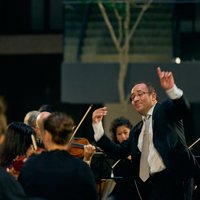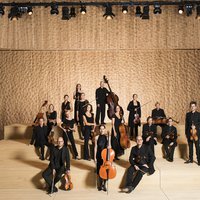Ensemble Resonanz demonstrates how an orchestra can function in a democratic way. It will perform the final concert of the Democracy Music Festival on 3 October 2024 and bring its self-image of equal cooperation to Beethovenfest.
Ensemble Resonanz: Grassroots democracy in the orchestra
»Co-creation is a precious gift«

Just as all state power in a democracy emanates from the people, in the case of Ensemble Resonanz one could easily speak of an ‘orchestocracy’. Founded in 1994, the chamber ensemble has always been governed by the principle that all decision-making power comes from the musicians. To ensure that this works artistically and organisationally for around 100 concerts a year, the ensemble issues democratically legitimised management mandates – within the orchestra and to the management. This is how Tobias Rempe, artistic manager and managing director of the ensemble, describes it:
»The musicians are shareholders, they own the company. This is probably the reason why Ensemble Resonanz has been able to follow its own path in presenting classical and new music so consistently, and at the same time the source of its willingness to take risks, its creativity and excellence. The ensemble is involved in all key management processes via committees and mandates; this ensures a high level of identification and is certainly also the basis of its special energy on stage.«
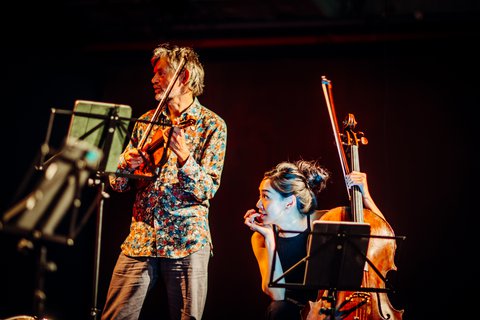
The ›chair-edged‹ energy that characterises the ensemble on stage can already be felt in rehearsals. It testifies to the great satisfaction that prevails among the members of the ensemble – even though the musicians do not receive a fixed salary and, as partners, also bear the economic risks, as was recently felt during the coronavirus pandemic.
»I couldn’t imagine any other form of musical collaboration,« says solo cellist Saerom Park. »I believe that I can only really exist as a musician in an ensemble if I have the opportunity to be part of a collective without having to give myself up as an individual musician. This mixture also makes me happier as a person.«
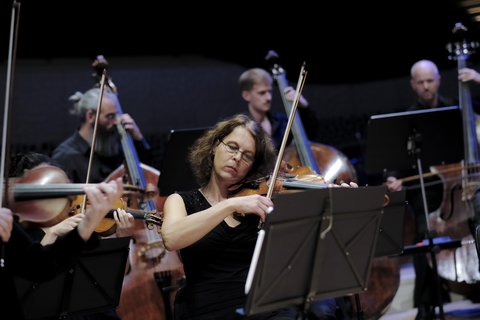
The right to have a say plays a central role at Ensemble Resonanz. It is true that leading roles are also assigned in the artistic work, for example to conductors or soloists. Nevertheless, the musicians can contribute their wishes and suggestions directly during the rehearsals. There are rules to ensure that the flow does not come to a standstill.
»Of course, we need guidelines so that we don’t end up talking throughout our rehearsal time,« explains Corinna Guthmann, violinist in the ensemble since 1997. »These are not written down anywhere, but have become established in practice over the years. One of them is that we decide who is in charge before each rehearsal.«
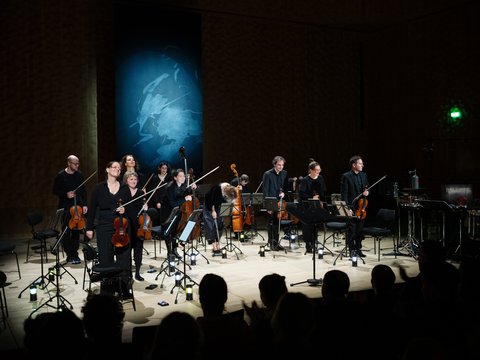
With its dual role as the resident ensemble of the Hamburg Elbphilharmonie and the club-like »resonanzraum« in St. Pauli, but also through innovative dialogue offerings, the ensemble actively seeks ›resonance‹ in society at large and also sets standards outside of music.
»We all share the basic consensus that we want to work and argue together peacefully,« says Corinna Guthmann. »Sometimes that works more and sometimes less well. In the end, however, we are strong when we do something convincing together. And we work on that every day.«
At the festival 2025
- , University of Bonn, Aula
Ensemble Resonanz: Constructing Nature
Orchestra, PianoEllen Ugelvik, Riccardo Minasi, Evelina Dembacke
Beethoven, Tjøgersen
At the festival 2024
- , Flick Gocke Schaumburg, Atrium
Euroica
Ensemble Resonanz, Riccardo Minasi, Jasmin Tabatabai
Beethoven
